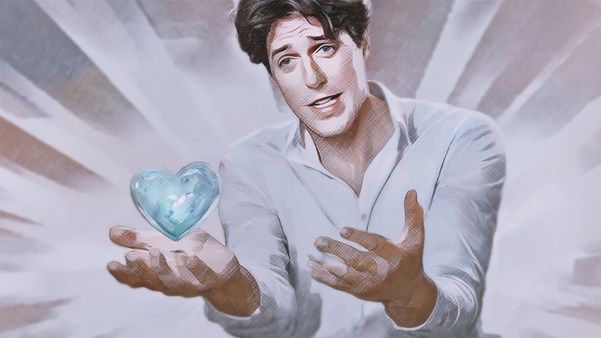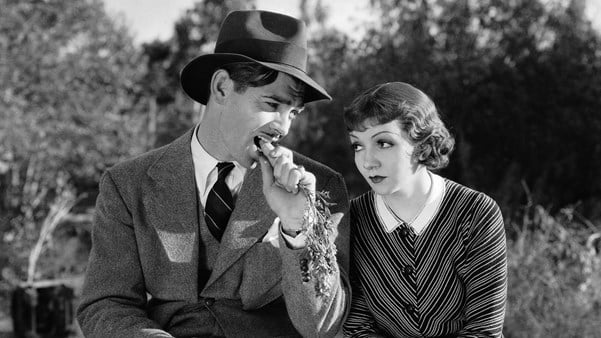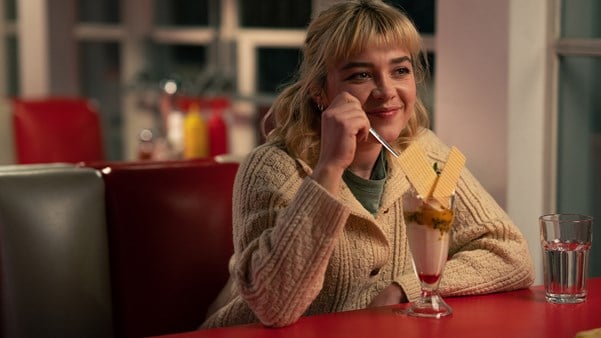The fourth cinematic outing of Helen Fielding’s messy, chain-smoking diarist wants us to mourn the loss of Bridget and Mark’s love – but should we? Yasmin Omar investigates.

In the opening scene of Bridget Jones’s Diary (2001), the haughty human-rights lawyer Mark Darcy (Colin Firth) snaps: ‘I do not need a blind date, particularly not with some verbally incontinent spinster who smokes like a chimney, drinks like a fish and dresses like her mother.’ He’s insulting Bridget Jones (Renée Zellweger), the heart-on-her-sleeve publicity assistant he will be involved with, on and off, for over a decade. This character-assassinating comment (that she overhears) sets in motion a Pride and Prejudiced-inspired, enemies-to-lovers romance that, across three films, never persuasively makes the case that Bridget and Mark should end up together. A matchmaking algorithm in Bridget Jones’s Baby (2016) puts their compatibility at a woeful eight percent and, based on their rocky courtship, that seems reasonable. She’s likely better off with Mad About the Boy’s young charmer (One Day’s Leo Woodall).
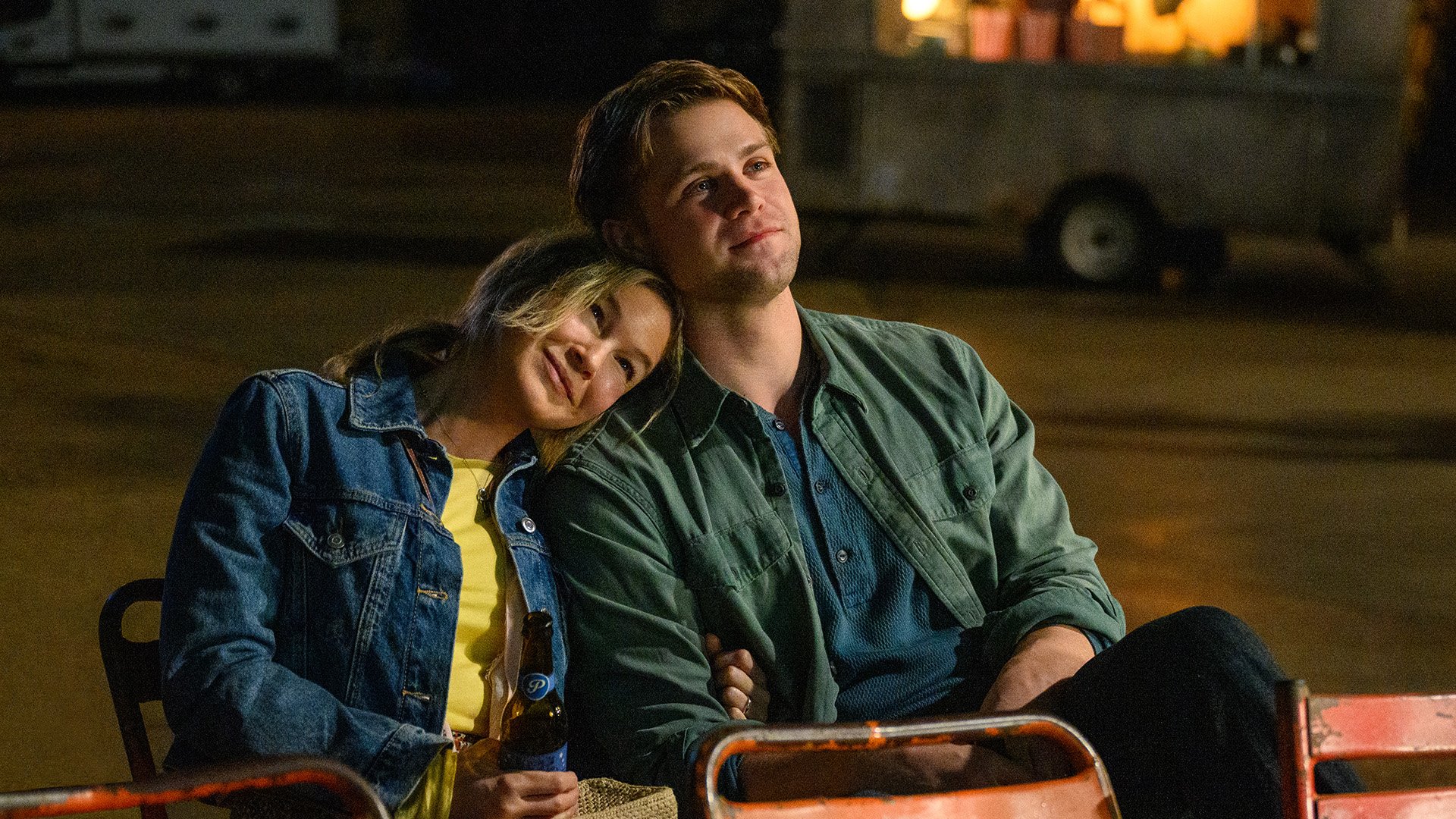
Bridget certainly has her flaws, but she really is a lot of fun. She’s someone who’s always up for trying new things (skiing, skydiving, spin class…), and has been known to crowdsurf at Glastonbury and choreograph a singalong of ‘Like a Virgin’ in a Thai prison. In the third film, a characteristically upbeat Bridget is on the dancefloor at a christening after party, wearing fairy wings and swinging her imaginary lasso to ‘Gangnam Style’ along with a dozen hyperactive children. Her characteristically downbeat ex Mark is at a remove from the action – standing alone watching rather than participating. Spotting him, Bridget approaches to say she would ask him to join her, though realises that such public revelry isn’t his thing. From there, Bridget and Mark have an uncomfortably stilted, cross-purpose conversation where she’s discussing Psy and he’s discussing the Paleolithic period.

Bridget Jones: The Edge of Reason (2004)
This encounter is a microcosm for their relationship. The rigid, immovable Mark is unwilling to compromise and meaningfully engage in Bridget’s interests; instead, he throws cold water on her fun, while also expecting her to honour his social engagements and accompany him at dull (for her) corporate dinners and work trips. She tries to fit herself into his world, but he will not deign to do the same. Throughout the franchise, there’s so little merriment between them that the Bridget Jones’s Baby director Sharon Maguire seems to have struggled to find enough clips to include in a highlight reel that helps Mark realise the error of his gherkin-up-the-backside ways. By briefly showing Bridget laughing in a rowing boat in the original movie, the film misleadingly implies that Mark was the one who made her smile. No, no. He was going over case notes with his business partner at the time. Bridget was actually chuckling because her other love interest, Daniel Cleaver (Hugh Grant), has toppled overboard. When your best-of montage is fudged, you know you’ve got problems.
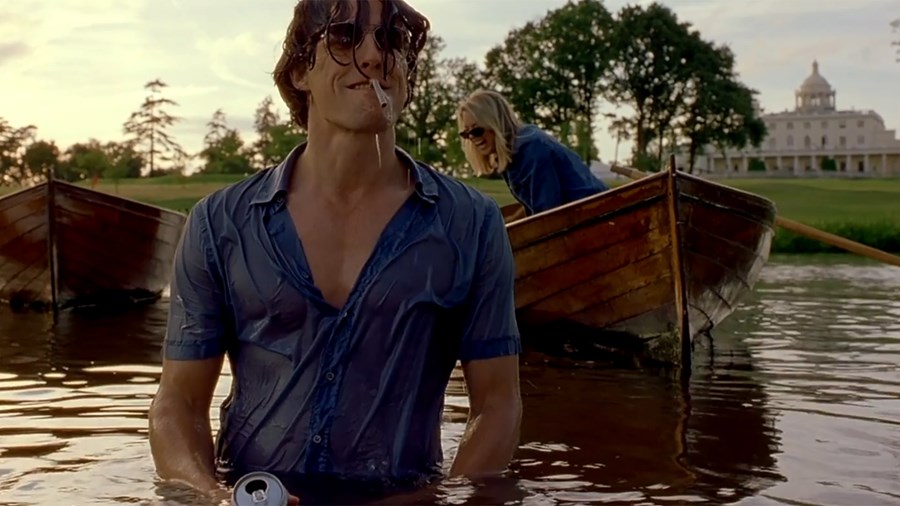
Bridget Jones's Diary (2001)
So Mark and Bridget’s temperaments (his gloomy, hers sunny) clash, as do their lifestyles (he’s a workaholic, she’s a nine-to-fiver). That’s difficult, but not insurmountable. What’s hardest for this ill-suited couple to overcome is their severe ideological differences. Gamely attending the stuffy Law Council dinner in Bridget Jones: The Edge of Reason (2004), our protagonist is introduced to Mark’s colleagues who are debating homelessness with the careless derision of the moneyed. ‘The people you see outside the Tube every day are there by choice,’ Catherine Russell’s Camilla sniffs. Bridget, shocked, laughs, charitably assuming she misspoke. Camilla doubles down on her opinion, resulting in a barbed, loggerheaded exchange that concludes with Bridget calling the assembled guests ‘fat, balding, Tory, Home Counties, upper-middle-class twits’. Mark does not stick up for Bridget in the moment, and later chastises her for her outburst in such a way as to avoid directly confirming whether or not he agrees with his fellow lawyers.
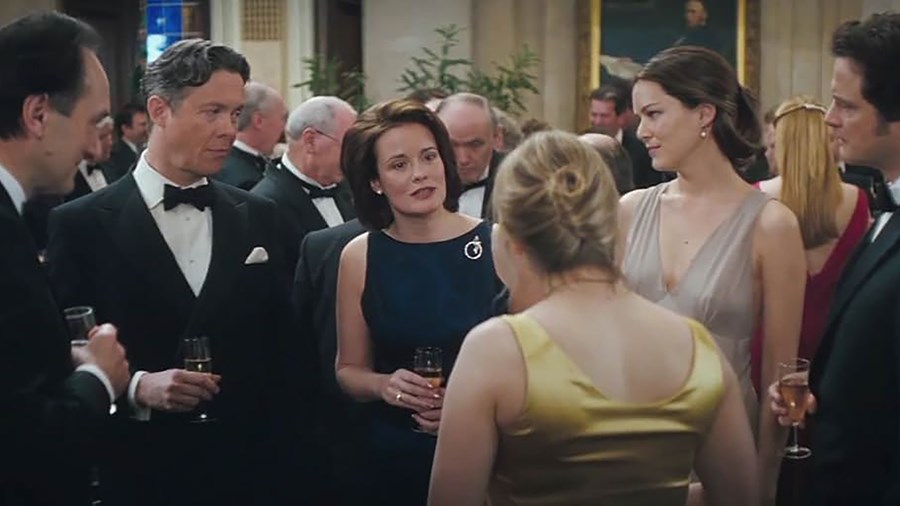
Bridget Jones: The Edge of Reason (2004)
The couple’s conflicting worldviews resurface once again when Bridget has a pregnancy scare. As she and Mark await the home-test result, their initial excitement for parenthood quickly descends into bickering because – surprise, surprise! – they cannot agree on how they’d raise their imagined son. Mark wants another Mark Darcy to send to Eton and teach cricket; Bridget wants her Hebrew-named boy to live at home and enjoy his education. The supposed ‘triumph’ at the end of Bridget Jones’s Baby – that the titular child, of previously uncertain paternity, was in fact sired by Mark – is misplaced. Nothing has changed since The Edge of Reason argument: the lives Bridget and Mark plan to build for their child are completely at odds.
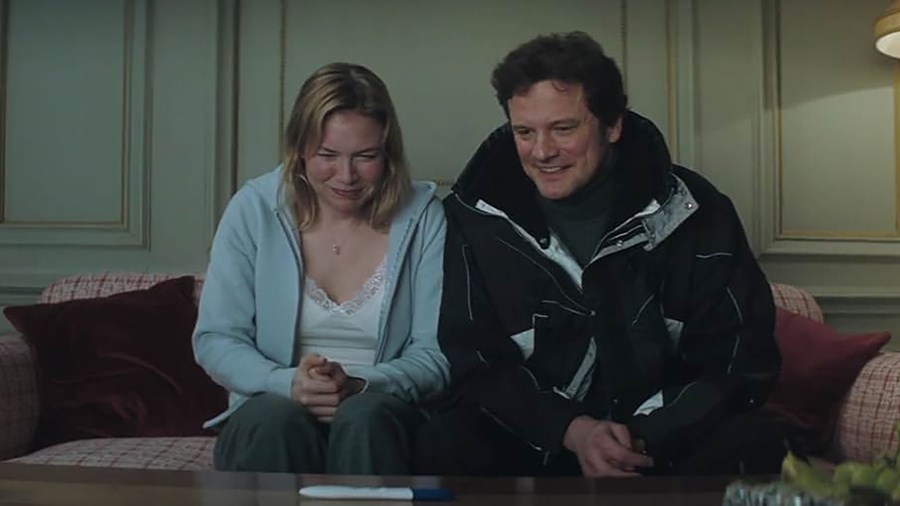
Bridget Jones: The Edge of Reason (2004)
Judging by her behaviour in the films, Bridget’s love languages appear to be quality time and words of affirmation, neither of which Mark satisfies. His intense emotional repression threatens to tank their relationship on several occasions: Bridget is so unsure of his feelings in The Edge of Reason that she convinces herself he’s having an affair with a 22-year-old. And who can blame her? The first time Mark says he loves her is not to her face, as is customary, but into an intercom after a long, courage-gathering pause. He is clearly embarrassed by his declaration, angling his back towards a gang of nearby teenagers, whereas Bridget relishes it, urging him to repeat it again and again until he’s shouting – with his usual gruffness despite the tenor of his words – into the machine. She seems to realise, even then, that Mark will not be affectionate with her, which is why she draws this moment out. Communication problems fuel much of the sequel’s drama. His (inaccurate) claim that he did not play a significant role in waiving Bridget’s cocaine charge, and liberating her from prison, leads her to assume he doesn’t want to be with her anymore.
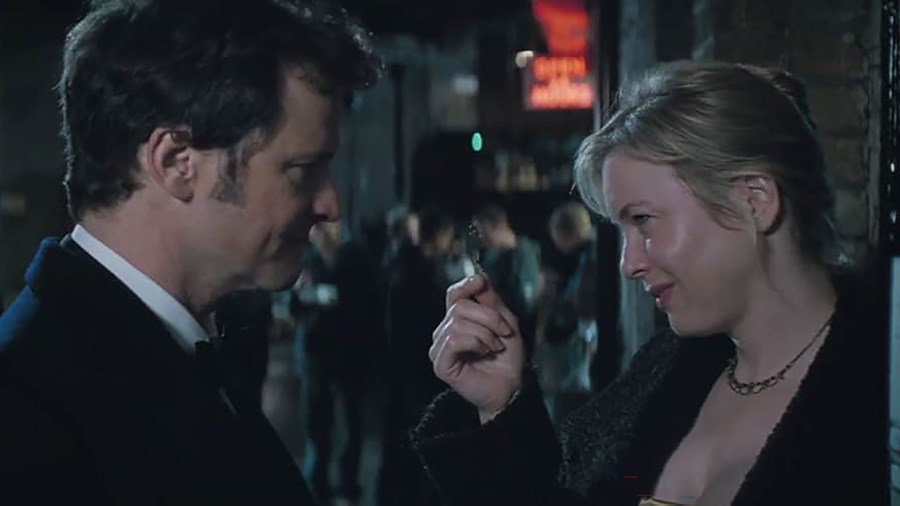
Bridget Jones: The Edge of Reason (2004)
Naturally, their reconciliation requires Bridget to deliver the big romantic speech – in Mark’s dark wood, college crest-lined boardroom filled with diplomats – prompting his anticlimactic proposal that, much like the ‘I love you’, has to be repeated. Since he spends almost all his waking hours there, Mark’s chambers provide the backdrop for a number of important conversations with Bridget throughout the franchise, the surroundings’ fusty traditionalism mirroring his own. When she goes to his office to tell him she’s pregnant in Bridget Jones’s Baby, Mark reacts as you’d expect: coldly. Firth only reveals glimmers of Mark’s feelings (a cracking voice, a throat clearing), otherwise remaining hard, stern, dour. He leaves the room to process the news in an effort to conceal his emotions. His returning remark (‘I think this is quite possibly the most wonderful piece of information I’ve ever received in my entire life’) is somewhat undermined by the fact it’s delivered in a flat monotone many metres from the mother of his child. Bridget has an insecure attachment style. She needs a partner to validate her and Mark consistently refuses to do so.
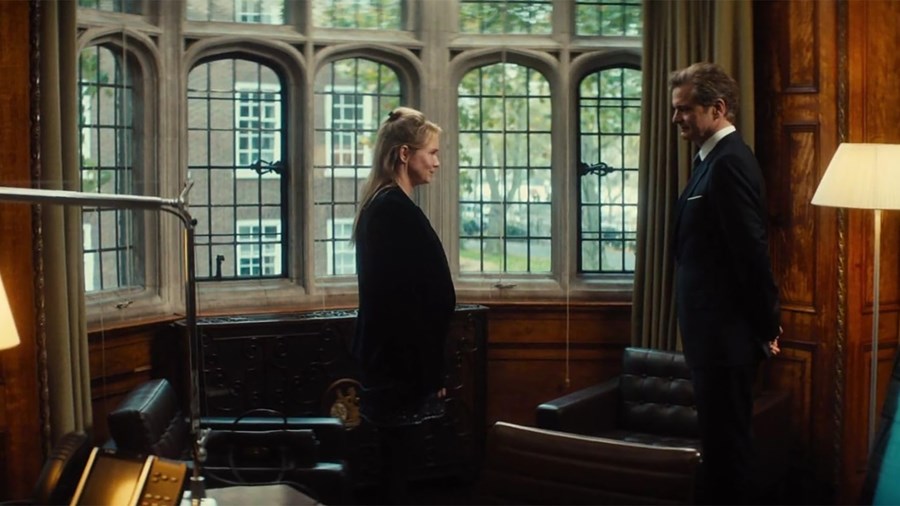
Bridget Jones's Baby (2016)
The most compelling case against the Bridget/Mark union is her damning letter explaining why they shouldn’t get back together in Bridget Jones’s Baby, which she leaves on her pillow post-coital. Key excerpts: ‘we could both come up with a hundred reasons why we didn’t make it’; ‘we did the best thing by ending it when we did’; and ‘we always loved the fantasy of us, but the reality [...] is quite different’. As Bridget reads the letter in voiceover, we see the couple’s decade of relationship failings.
There’s Mark taking a work call outside the local trattoria, as Bridget sits inside looking woebegone. There’s Bridget, dejected at Heathrow, realising that Mark isn’t coming back after all. There’s Bridget, holding a candle-covered cake and wearing nothing but an apron, gingerly slinking away from the gaggle of lawyers Mark has brought home on his birthday. The common denominator of these melancholy, minor-key vignettes is that Mark always prioritises his work over Bridget, which, as she writes in her diary, makes her feel ‘mostly alone… even when we’re together’. Although she says they ‘can’t go back and keep making the same mistakes’, that’s exactly what she does when she marries Mark at the end of Bridget Jones’s Baby. The big white wedding is not a victory, it’s a resignation.
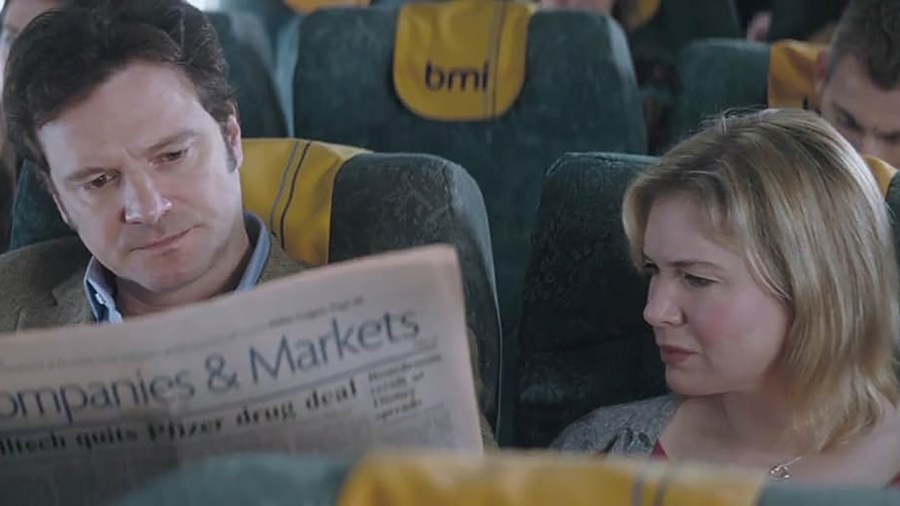
Bridget Jones: The Edge of Reason (2004)
Mark Darcy fans will remind you that he likes Bridget, very much, just as she is. It’s all well and good to say that, but his actions – constantly working, quashing her fun, siding with colleagues, poorly communicating – tell a different story. Mark and Bridget’s problems run much deeper than the fact that he folds his underpants. And she knew this herself, well before he died. Mark may not be a fuckwit, alcoholic, pervert or megalomaniac, but he certainly isn’t right for her.
WATCH BRIDGET JONES: MAD ABOUT THE BOY IN CINEMAS


